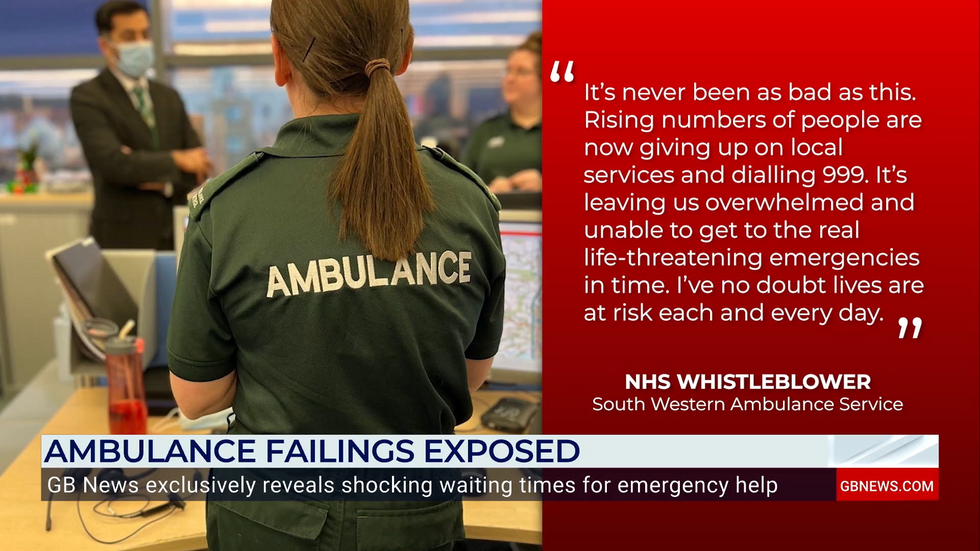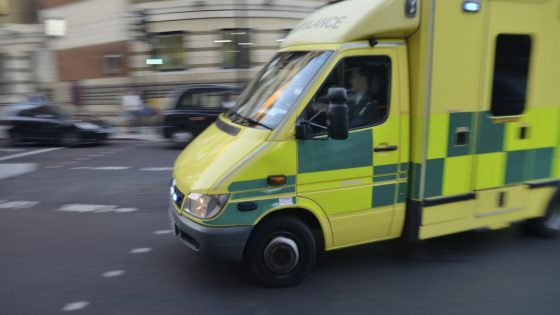THE full-scale crisis now gripping the country’s ambulance service can today be laid bare.
Shocking new data obtained by GBNews reveals patients facing waits of FOUR DAYS for an ambulance when they dial 999.
The patient in the South West of England suffering from psychiatric problems waited over 103 hours – a total of 4 days, 7 hours, 54 minutes – for help to arrive.
Last night a whistleblower who works in the trust told us: “It’s never been as bad as this. Rsing numbers of people are now giving up on local services and dialling 999. It’s leaving us overwhelmed and unable to get to the real life-threatening emergencies in time. I’ve no doubt lives are at risk each and every day.”
A patient was forced to wait more than four days for an ambulance
GETTY
GB News obtained our information using Freedom of Information laws, and by writing to all of the country’s major ambulance trusts to ask them for a breakdown of their longest waiting times over the last 12 months.
The findings were astonishing.
LATEST DEVELOPMENTS
*A case where of a wait of over two and a half hours for someone in cardiac arrest – where minutes and seconds count towards survival.
*An unconscious patient who waited over TWO HOURS after their ambulance was diverted NINE TIMES.
* A two-days and twenty hour wait for a patient who had fallen over in Wales
Other cases included:

An NHS whistleblower has laid bare the extent of the crisis facing the ambulance service
GB NEWS
*A 20-hour wait for a patient in the East of England earlier this year, suffering from what was recorded as ‘Acute Coronary Syndrome’. ACS is a group of conditions which include heart attacks and unstable angina.
*A patient in Yorkshire waited 21 hours for help after suffering with ‘traumatic injuries’.
*And in another case in London a man waited over 22 hours after falling unconscious. In the end he regained consciousness hours before the ambulance arrived.
Commenting on the four day wait case, a spokesperson for South Western Ambulance Service NHS Foundation Trust said: “We are sorry that we were unable to provide a timely response to some patients during this period.
“Any occasion where the care we provide falls below the high standards our patients deserve and rightly expect is unacceptable.
“Thanks to the hard work and dedication of our people and partners, our response times from the middle of January 2023 onwards have recovered to a more stable position, compared to the post-pandemic period.
“Since 2020 we have increased the number of hours our ambulances are on the road every week from 37,000 to 48,000 and our aim is to get to 50,000 hours per week. In our Emergency Operations Centres where 999 calls are received, we have paramedics and clinicians working to remotely triage patients and signpost them to alternative care pathways as appropriate which helps to avoid unnecessary attendances at hospital emergency departments.”
Source Agencies



